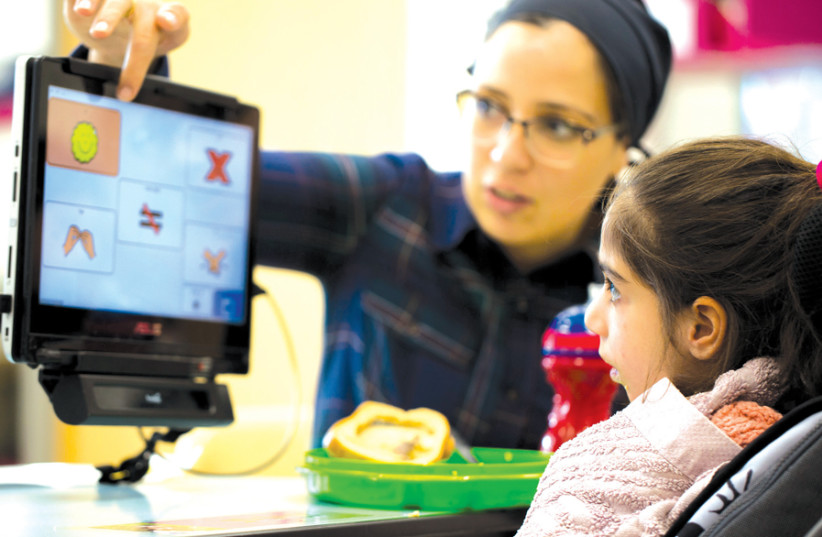The summer vacation has temporarily suspended the media’s coverage of the salaries and status of Israel’s teachers. But as the beginning of the academic year approaches and the question of whether it will open as scheduled reaches the headlines, the data continue to point to an educational crisis in Israel, the main problem being the shortage of teachers.
Whether one opposes or supports the measures proposed by the chairperson of Israel’s Teachers Union, Yaffa Ben-David, allow me, in my capacity as an educator and mathematics teacher at the Gil Rabin School in Sderot, to share with you my feeling that the media’s exposure of the severity of the crisis has reconfirmed for me that I am in the right place at the right time. The severe shortage in teachers is keenly felt in almost every school in Israel, and now, more than ever, the time has come to provide a platform for teachers like me, who are proud of the profession we have chosen.
We are all familiar with the reality of our lives – young couples can’t afford to buy a home or make ends meet, women are murdered by their spouses, there is violence in the streets, cars explode and assassinations occur. All this is part of the morning news fed to the children in Israel.
Within such a reality, I don’t understand how decision-makers, who claim to be working night and day to improve the quality of life for all of us, have not reached the understanding that everything begins with education. It is urgently necessary that the state invest in education and in high-quality teachers, backing this up with unprecedented budgets and resources, for there is no other solution.
EDUCATION IS the only means by which the state can reduce gaps and create real equality of opportunity for every boy and girl. There are those who like to think that the starting point for a boy from the Bedouin town of Hura, a girl from Beit She’an and a boy from Ramat Gan are all the same. This is not the case. As the years go by, the gaps in education grow and so does the inequality in society.

The painful truth
This is the painful truth that I and hundreds of other teachers, who view teaching as a mission, and who work in schools in the social and geographic periphery, encounter daily. A pupil of mine who was diagnosed with ADHD and for years could not sit still and study mathematics for one minute, now sits mesmerized in class with an old tablet which I found in the school storage room while looking for other equipment to make studying a better experience. This is a small change in learning habits that completely transformed the entire learning experience of that child.
If we want to effect real change and create social mobility, we must be bold and declare in a clear voice: “There is no equality here.” Then we should recruit educated people who have a vision and a desire to make a change, educators with charisma, determination, sensitivity, and first and foremost, faith; leaders who can manage a class successfully, not only through the teaching material but also with life skills. The system’s challenge is to make the teaching profession valued and appreciated, seen as a profession that has the potential to change the lives of children.
As someone who ran an advertising agency for three years and then transitioned to teaching, I can testify that not only is it possible to bring young men and women into the educational establishment, but that it has already been going on for more than a decade. The Hotam organization finds young intellectually talented men and women, performs a selection process, and trains and accompanies them from the moment they enter the school gates and throughout their initial years in teaching.
The organization offers them personal development and self-empowerment programs, as well as provisional plans for school management with the understanding that there is no substitute for the Israeli teacher. If we wish to advance real equal opportunity, we need to promote the teaching profession and to invest in the missionaries of change – male and female teachers.
We, the teachers in Israel, constitute a strong, top-quality, life-changing community. The publicly elected officials must understand that the shortage of teachers is the result of the constant erosion of the teacher’s status, and one of the main solutions that will help get us out of this ever-worsening crisis is to invest funds and resources in these types of programs.
Only in this way will more and more people join me in the teaching profession, so that they can wake up each morning with pride and love for the profession they have chosen. Teachers who can promote the motivation necessary toward achieving the success of Israel’s pupils – the future generation – will extricate us not only from the current crisis, but also from many of the crises in Israeli society.
The writer is a schoolteacher at the Gil Rabin School in Sderot. He is a graduate of Hotam Naomi training program in the “Teach First Israel” organization. He is part of the MA program of management and organization of Educational Frameworks under the auspices of Hotam and Beit Berl College.
